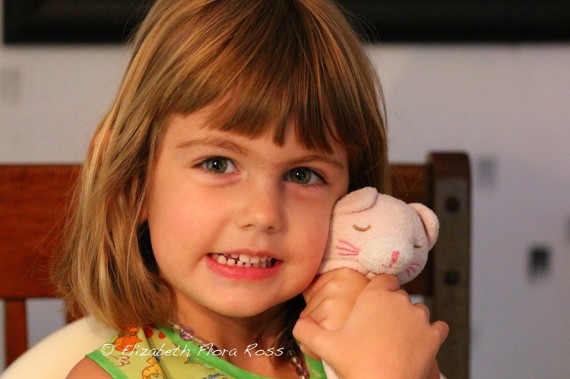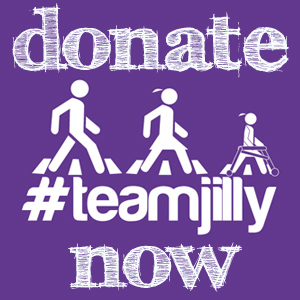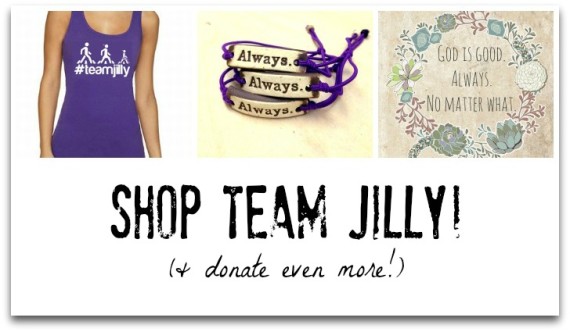Today’s post is written by Elizabeth Flora Ross, author of the blog The Writer Revived and founder of The Mom Pledge.
You can see all of the posts on the epilepsy series here.

My daughter experienced her first seizure when she was three years old. I had never seen one in person. And what I witnessed that day in no way resembled things I had seen in movies or on TV. I was completely unprepared.
It was a terrifying, helpless feeling to watch my child going through that.
Immediately, we began a journey into the unknown. What followed were an ER trip, countless doctor’s visits and medical tests, even hospital stays. My daughter grew from a child who always loved visiting the doctor to one who feared going.
I had to educate myself about epilepsy as much as possible, as quickly as possible. In the end, there were no answers, as is the case with as many as 75% of epilepsy cases.
That is good news in doctors can find nothing obviously or seriously wrong with my child’s brain. But while that is a relief, it is also somewhat frustrating. Because when your child is having seizures, you want to know why and you want them to stop.
To meet the latter goal, she is on twice daily anti-seizure medication. The dose is adjusted as she grows and if she experiences a breakthrough seizure. Side effects are unpleasant, but short term and manageable. As I write this (and I am hesitant to even type it), she has been seizure free for almost six months.
I constantly worry about when the next seizure will come. Where she will be, and whether or not she will be injured in the process.
Apparently, I should have also been worried about her being hurt emotionally. You see, at the tender age of just four years old my daughter was taunted on the playground at preschool as a result of her seizures.
It absolutely floored me. My focus since has been on helping my daughter deal with this kind of treatment should it continue to happen. And on building her confidence.
According to the National Epilepsy Foundation, one in 26 people in the US will develop epilepsy in their lifetime. More people live with epilepsy than with autism spectrum disorders, Parkinson’s disease, multiple sclerosis and cerebral palsy combined.
My daughter is more than a statistic. And a medical label does not define her. She is bright and inquisitive and silly. She loves to make friends and give hugs. Is passionate about animals.
She is a human being. All I want as her mother, beyond her good health, is for people to treat her the same way they want to be treated. It is not complicated. Or difficult.
I don’t necessarily believe all parents need to talk to their children about epilepsy. But I do feel it is essential that they have wider discussions about treating others with kindness. Accepting those who are different. As parents we need to help our children understand the many ways we are different and that every person matters.
If your child has a friend, family member or classmate with epilepsy, or has witnessed a seizure, it would absolutely be helpful to talk to him or her about it. The National Epilepsy Foundation has some great resources.
I am also a fan of the organization Talk About It, spearheaded by celebrity father Greg Grunberg, whose son has epilepsy. Greg is working to end the stigma surrounding epilepsy by raising awareness and making it part of our normal conversation.
I print fact sheets out each school year to provide to my daughter’s teachers. I offer to speak to the class and/or the parents. I speak opening with friends and family members. I talk about epilepsy regularly on my personal blog and though various freelance gigs, as a way to advocate for my daughter.
I would like to thank Jeannett for inviting me to share my story here, and for all she does to build awareness and raise funds for this important cause!
* * * *
Elizabeth and I have chatted many times online and I’ve followed her various social media accounts and, as a result, her life for a while now. You can imagine how horrified I was to learn of the taunting her sweet daughter…and how young of an age it started at!
Elizabeth brings up such an important topic for all of us as parents to remember: Model Kindness.
As we teach our children to be kind, no matter what, let’s support one another too. Epilepsy affects way too many people. It may no affect you, but based on the numbers, I assure you it affects someone you know (they may not have told you yet!). My mother in law just found out that someone she has known for over 40 years has had epilepsy since they were children…she was just never told!!! I wouldn’t doubt that fear and shame were a part of that decision to keep the condition secret.
I hate that.
Please consider donating to our fundraiser to support epilepsy awareness and support programs for families living with the condition.
We’ve raised over $32,000 for various charities over the years…let’s not stop now!
So you…yes YOU….have YOU donated yet? Just $5 at a time. It doesn’t have to be a huge amount. Every little bit helps (isn’t that what we tell our kids?).
We also have the cutest merchandise you can buy with proceeds benefitting the fundraiser as well.
Join #teamjilly and help spread the Kind.
Pretty please?





















Thank you for sharing your experience with us. Wish I had more time to hang out here in the comment box & share some more but gotta run for now. {{hugs}}
Paula Kiger´s last blog post ..Let’s Not Mince Words: Helen Needs a Kidney Donor!
As far as I know we didn’t have many issues with teasing, however, I do think the steps Elizabeth is taking now are wonderful!!
Katie´s last blog post ..Race Recap: Irongirl Duathlon Bloomington 2013
Everyone can model kindness. I am sorry Elizabeth had to endure taunting, particularly about a medical condition. It’s great to hear about proactive parents educating others. I’ve already learned quite a bit about epilepsy through this series. Thanks to the contributors and to Jeanette for demystifying this important topic.